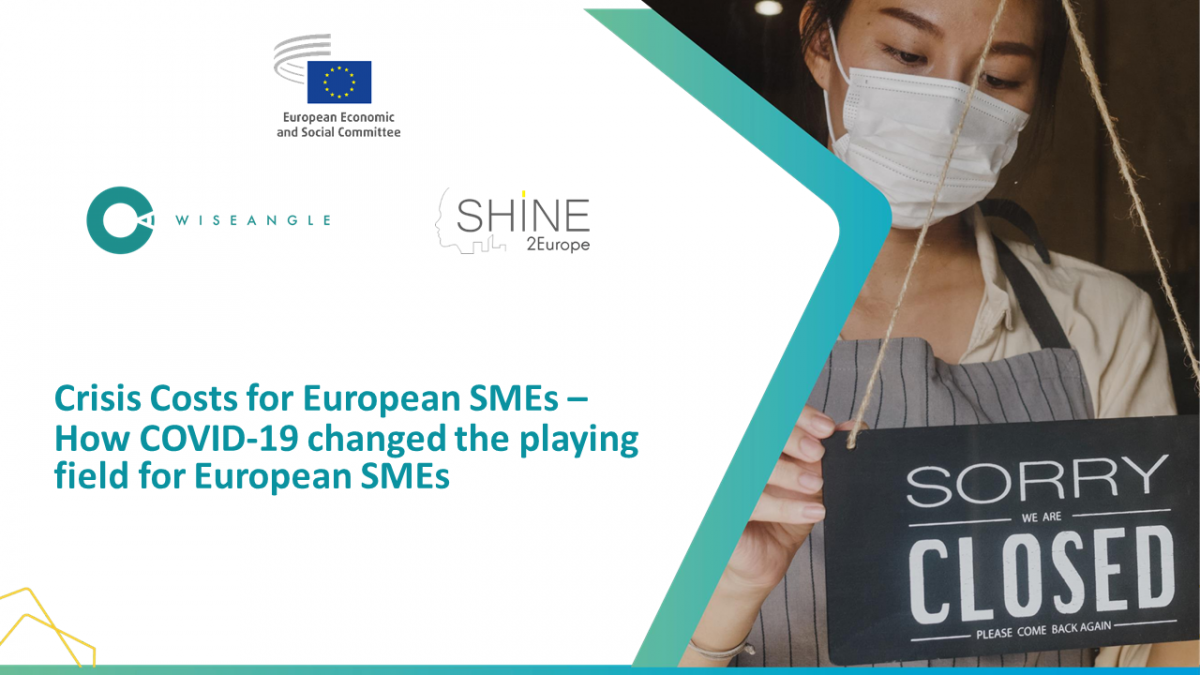INSME will contribute to the study “Crisis Costs for European SMEs – How COVID-19 changed the playing field for European SMEs”. The research, commissioned by the European Economic and Social Committee (EESC), and delivered by the research firms Wise Angle and Shine2Europe, aims to provide a systematic classification of COVID related transformative impacts on SMEs (on and beyond Economy & Employment) and a targeted performance analysis on 6 sectors and in 12 countries.
The EESC commissioned the study acknowledging the generally accepted idea that SMEs are truly at the heart of the European economy. The advent of the COVID-19 pandemic became the landmark for one of the greatest economic recessions ever experienced. However, this was not perceived equally by all typologies of SMEs. Indeed, the EC did not fail to identify that while certain sector-industries were severely affected (i.e., ‘accommodation and food service activities’, ‘transport and storage’, ‘manufacturing’) or moderately decreasing (e.g., home energy supply, construction or scientific and technical activities), other sectoral SMEs (particularly in the digital sector and information and communication industries) experienced either a very small decrease or even an increase in total added value and employment rates .
The study will be conducted starting from 2 main questions: i) How to understand the real impacts (positive/negative) of the pandemic on different types of SMEs? ii) How to define “winners” and “losers” of the COVID 19 crisis in the SMEs environment? In operational terms, the scope of the analysis of transformative impacts on SMEs is limited to six typologies of industries: manufacturing, construction, innovation and research, tourism, agro-food, and retail. Likewise, the area of the study is included in the sample of twelve EU countries also proposed by the Tender specifications. These include data from: Italy, Bulgaria, Greece, Spain, Germany, Croatia, Poland, Finland, Portugal, Romania, France, and the Netherlands.
The key methods selected include a qualitative theoretical study, the realisation of qualitative interviews and a work of quantitative data collection. In turn, these will help to achieve the following: a mapping and better understanding of the relevant transformative effects per each sector; a fieldwork of at least 36 interviews; and a list of strategic public proposals according to specific criteria (i.e., general/by sector; short-term/long-term/; national/EU level).
The theoretical study and the preparatory ground for the fieldwork are well under way and will be published in the coming weeks.
Source: INSME Secretariat


